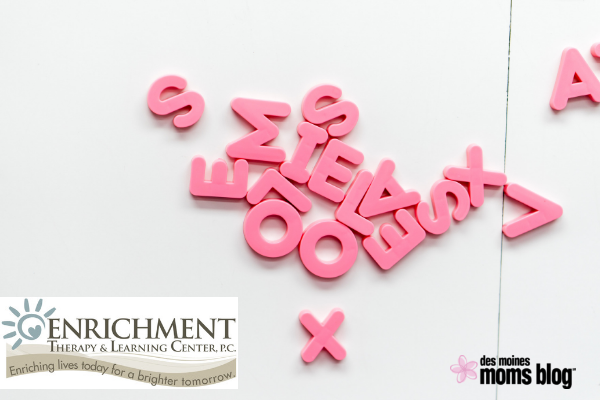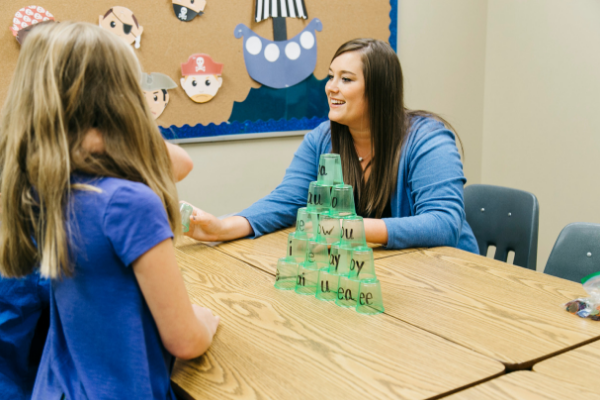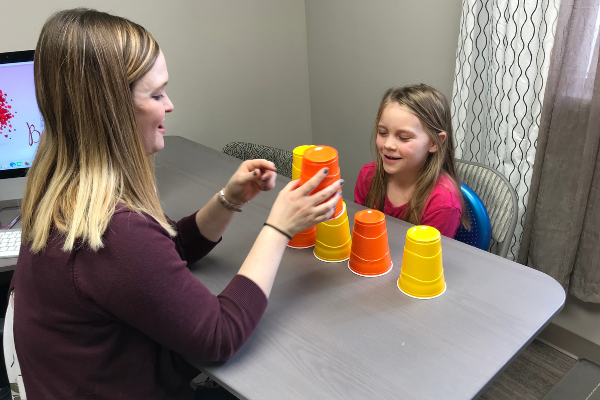 Dyslexia is more than mixing up b’s and d’s or reading or writing a word backward. Though these are often signs of dyslexia, dyslexia is so much more.
Dyslexia is more than mixing up b’s and d’s or reading or writing a word backward. Though these are often signs of dyslexia, dyslexia is so much more.
Do you feel like your child is struggling, but you don’t know why? Is dyslexia something that has crossed your mind, but you weren’t really sure what it meant?
October is dyslexia awareness month. While dyslexia can be scary at first, it doesn’t have to be overwhelming. Let’s talk about what dyslexia is, how it can be evaluated, and how we can help your child succeed!
What is dyslexia?
Dyslexia is a type of reading disorder that affects a child’s ability to read fluently. Students with dyslexia often struggle to identify the sounds for a particular letter or segment a group of letters. This affects their ability to read words and paragraphs fluently, to spell words, and to use words in writing.
According to the Decoding Dyslexia Healthcare Screening, “Dyslexia is a specific learning disability that is neurological in origin. It is characterized by difficulties with accurate and/or fluent word recognition and by poor spelling and decoding abilities.”
If you are concerned that your child may have dyslexia, it might be time for an evaluation.
 How is dyslexia evaluated?
How is dyslexia evaluated?
As the first step of an evaluation process, Speech-Language Pathologists (SLPs) at Enrichment Therapy and Learning Center (ETLC) will hand out a questionnaire or Dyslexia Checklist to parents to find out more about some of the symptoms they are experiencing and seeing in their child.
Next, a full dyslexia evaluation will be conducted. This typically includes a variety of tests and can be given by a psychologist or SLP. The evaluation can last anywhere from 2 to 4 hours, depending on the number of areas that are addressed. Depending on the results of the evaluation, a diagnosis of dyslexia may be made and recommendations for dyslexia therapy will be given.
Finding dyslexia success
Now what? You’ve gotten the dyslexia diagnosis, but how do you help your child? While each child has their own individual needs, here are some areas that might be focused on:
Reading Accuracy
It is important to start addressing your child’s reading accuracy and knowledge of vowel combinations and phonetic rules before addressing reading rate. Students must first get the technique down (accuracy). Then as the skill becomes more natural, they can start practicing it with increased speed (rate). Too often the reading rate is the main focus in dyslexia programs which only creates unnecessary frustrations.
 At ETLC we start working with students on vowel combinations to increase awareness of phonetic rules. Click here to download a copy of vowel combinations.
At ETLC we start working with students on vowel combinations to increase awareness of phonetic rules. Click here to download a copy of vowel combinations.
Nonsense Words & Phonetic Rules
Next, we focus on learning the phonetic (decoding) rules and applying them to real and even nonsense words. Practicing with nonsense (not real) words is important because so many kids with dyslexia rely on guessing a word based on context. While that is a smart strategy, it is not very effective and will only get them so far. When we apply the phonetic rules to words that are not real, the child can’t rely on guessing. They must, instead, use the phonetic rule to sound the words out. For instance, when a child is given the nonsense word “meab,” he must rely on his knowledge of the phonics rules to sound it out. He can’t just guess word, because it isn’t a real word.
Download your own copy of Decoding Rules!
Sight and Spelling Words
Weekly sight words and spelling lists are also very important for children with dyslexia. Sight reading and spelling words that do not follow the typical rules and should be targeted with children as well. At ETLC we utilize a visualizing program for our sight spelling words.
Check out our Therapy Talks video on visualizing spelling words for more.
Brain Training Activities
Some students with dyslexia benefit from other strategies like brain flexibility games, memory and attention skills games, and handwriting skills. This as a fun way to improve attention skills, enhance working memory, and build visual processing skills.
Comprehension
What is the use in reading if your child isn’t understanding what they are reading? There are specific strategies that should be implemented to teach your child how to create an image in their head about what they are reading.
For instance, if I gave you step-by-step directions on how to do something, you may remember the steps by visualizing. In your head, you see yourself doing the steps. Many children do not automatically know how to visualize, so they need to be taught how to do it.
Improving kids’ imagery skills increases their ability to retain details and main ideas, which ultimately helps them to answer higher-order-thinking questions with greater accuracy.
Here is a look at all the ways visualizing is used at ETLC, not only to increase ability to answer higher order thinking questions but also for so much more.
Connect with Enrichment Therapy and Learning Center
ETLC offers free screenings for all of our services: speech, language, writing, math, and dyslexia. We have offices in North Liberty and the Des Moines metro.
Enrichment Therapy and Learning Center’s website
To schedule a free screening or to learn more about their Urbandale location, call 515-419-4270.
E-mail: [email protected]
Our friendly and knowledgeable staff are here to help. Please call in with any questions and we will assist you in any way that we can.
About the Author, Sarah Sitzmann
Sarah Sitzmann is a Speech-Language Pathologist at Enrichment Therapy and Learning Center. We provide individual speech language therapy and tutoring. We also offer a unique group Language Enrichment Academic Program (LEAP). At Enrichment Therapy and Learning Center our passion is to help kids achieve effective communication skills and gain academic success. Contact us for more information on how we can help your child succeed.
Enrichment Therapy & Learning Center’s mission is to is to give hope to families by helping children of all ages achieve their God-given potential. We provide an individualized, approach to improve each child’s ability to communicate with others and achieve academic success. We are enriching lives today for a brighter tomorrow.
















